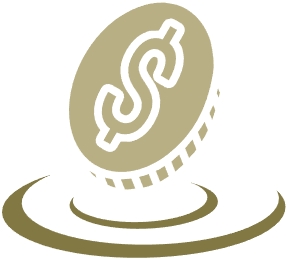What is a no-closing cost mortgage?

You’ve put together your deposit, and you have to pay the application fee as well as legal fees, appraisals, inspections tax and title insurance. What will be left to pay for the moving company and furnish your new house?
A home purchase may start to feel a bit out from reach, but there’s an alternative which could be helpful.
What is a no-closing cost mortgage?
It sounds fantastic: There are no closing costs? Yes please.
However, with no-closing-cost mortgages you’re really delaying the payment of various upfront costs by enlisting the assistance of the lender.
Mortgage lenders who offer these types of loans will instead charge a higher interest rate for the length of the loan or charge the fees to the principal amount.
If you’re borrowing $300,000. and the closing costs are $9,000. With a no-closing cost mortgage then you’d or have principle of $309,000, or your incredibly low mortgage interest will decrease.
Who can offer mortgages with no closing cost?
These loans are available through the institutions which offer different types of mortgages: national and local credit unions, banks and various other private lenders.
There aren’t many companies that claim they provide no-closing-cost mortgages so make sure you ask about it if this is what you’re searching for.
Some lenders might not offer mortgages in the first place -or may be very cautious when deciding whether you are eligible for one. It’s possible that it will depend on many aspects, such as the scores on credit and employment status, the ratio of debt to income and many more.
Be aware that no-closing-cost mortgages don’t only apply to new homeowners. Some lenders will pay for closing costs on refinance loans as well.
Pros and cons to no-closing-cost mortgages
There are benefits and drawbacks with mortgages that do not require closing costs. Like all situations, yours is unique. What is effective for one homeowner may not be the best option for a different buyer.
With that said there are some generally accepted pros and cons to help make the best decision.
Pros
- Less upfront fees. If you have an income that is steady but are lacking money in the bank and you’re looking for a mortgage with no closing costs, a no-clos assist you in overcoming the barrier.
- The short-term saving. If you’re planning to reside in a house for only a few months and you don’t have to worry about losing any money if you need be paying a greater rate of interest on the loan to cover the closing expenses. Keep in mind that lenders might apply prepayment penalties for some time to prevent people from refinancing prior to when they’ve recouped their costs.
Cons
- Stiffer the long-term cost. If you plan to stay in your new residence for a long period and pay a higher interest rate or greater principal amount could mean you will pay far more in the long run than you would have in advance at the time of closing.
- More monthly payments. This downside begins immediately. The regular mortgage payment will be significantly higher if you do not pay closing costs, but rather accept an interest rate that is higher or a the loan amount.
What is the average cost for closing generally?
What financial pain can you avoid by taking the mortgage offered by these lenders? Here’s a breakdown of the typical closing expenses and the amount you’ll need to pay in advance.
The cost of loan origination
This is the cost that lenders pay to make the loan.
The other part is used to pay for their customer support, as an officer from the loan company will remain contact with you throughout the entire process. But, the majority of the work happens in the background, such as organizing documents and evaluating your eligibility to be eligible for the loan.
The lender of each will set their own set of criteria to determine its origination charges, however the typical cost for a mortgage varies between 0.5 percent to 1percent of the amount of the loan.
Appraisal fee
The fee is for what is the expense of having an appraiser assess the property and determine its value.
What is the reason for this? The appraisals prove to the lender that the price of the sale is in line with the value of the house’s actual value.
If you get an mortgage, the home itself becomes collateral which means that when you’re unable to pay the repayments and the lender is unable to make them, they can take possession. The lender is looking to make sure it is able to recoup its losses in the event that it has to sell your home later on down the road.
An appraisal for a home can cost between $300-$400 for a single-family house however, the price could differ a great deal, based on the location.
Title fees
The word “title” refers to the legal title to the property.
The cost covers the searching for necessary documents and title insurance, which offers some security in the event that someone comes to claim an interest in the property.
VA funding fee
Veterans, service members and eligible family members of military are eligible to apply for the VA home loan. The loan is guaranteed by the U.S. Department of Veterans Affairs. The borrower isn’t required to pay any down or make payments for mortgage insurance and the VA does not set a required credit rating.
However, if you’re qualified to apply for the VA loan, you’ll be required to pay a financing fee. This will help pay the costs for running the program.
It can be a single fee that is due at the closing or it could be included in the mortgage’s total amount and is paid every month.
The funding fee was increased in 2020 and could be thousands. To get a better understanding take a look at our analysis on VA loan funding charges.
The cost of credit report
It is likely that you have taken treatment about your credit prior to trying to get a loan, as the lender will look at your credit report. The credit report charge that is typically low, is the price for the loan provider to get access to the report.
Credit issues shouldn’t be the reason to stop you from buying your dream home right away So, before you take this stage, you should research the various ways to improve your score on credit.
Interest that has been paid
The fee is for the interest you will earn over the loan period between closing and your first mortgage payment.
The amount is contingent on the interest rate that the lender is charging that in turn may be contingent on the kind of loan you’ve got as well as your credit rating.
Discount points
These are fees that you may pay to an institution for the purpose of “buy down” your mortgage rate.
One point is typically priced at one percent of the loan amountthat is, you’d have to pay $2,000 for one point for an $200,000 mortgage. A single point can lower the rate of your mortgage by one-quarter of a percentage (0.25) which means that an 5% rate will drop to 4.75 percent.
Do you think buying points is a good idea? That’s up to you.
Do the math to find out the time it takes to get to you “break-even point” — which is when the savings you make by making your mortgage payments monthly is equal to the amount you paid to purchase points. Are you planning to live in your house beyond the time frame? If so, buying points can help you save money.









Leave a Reply